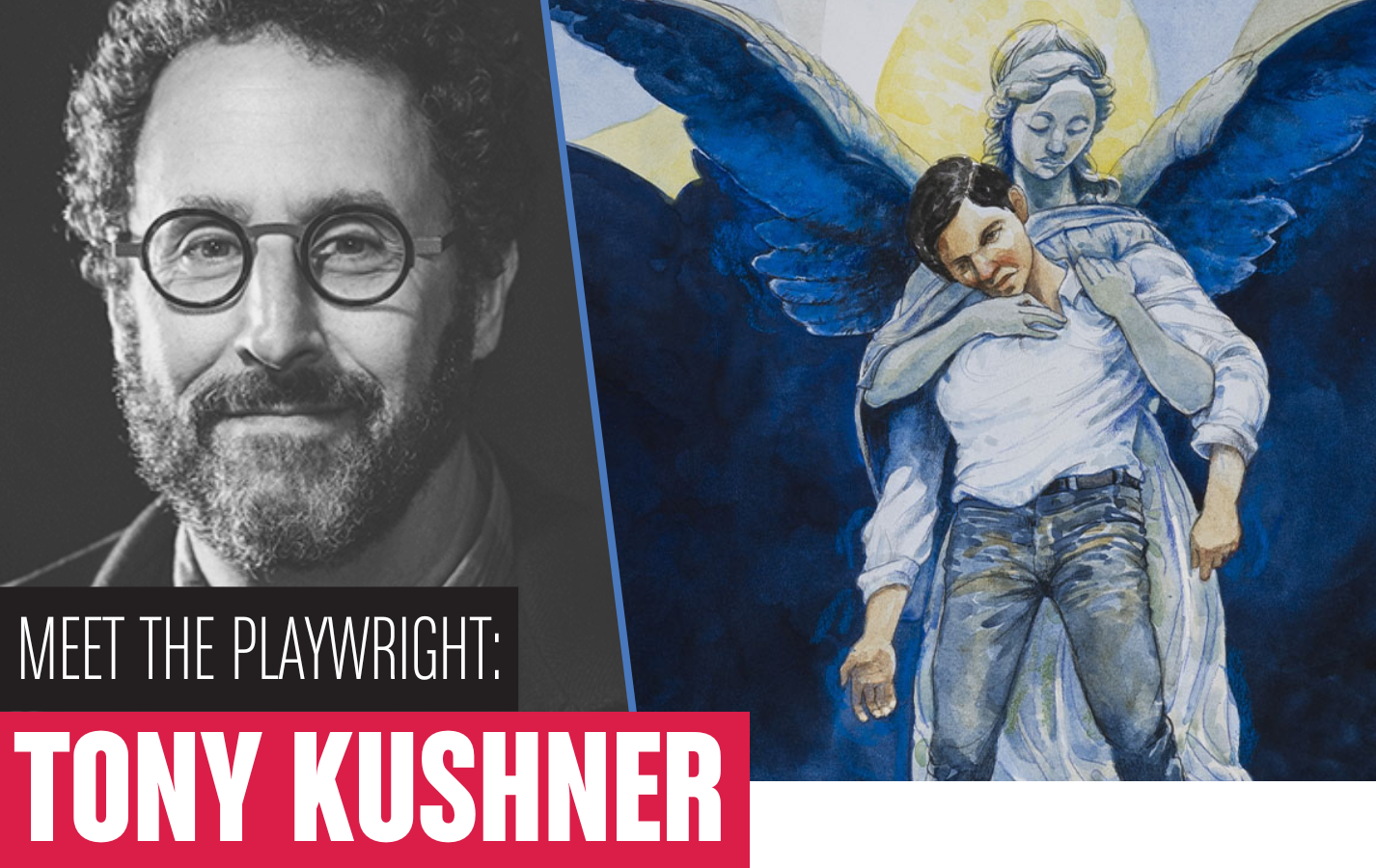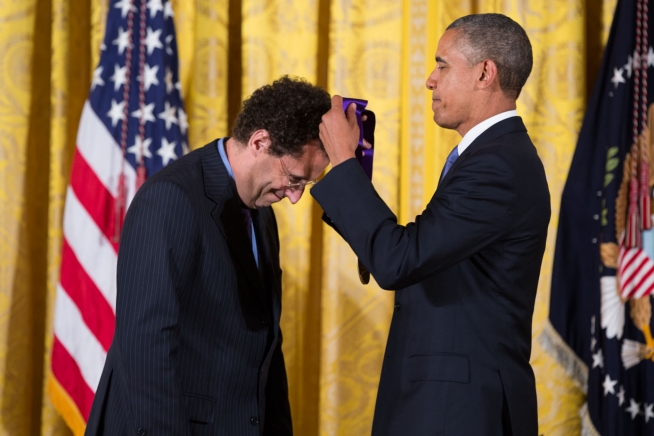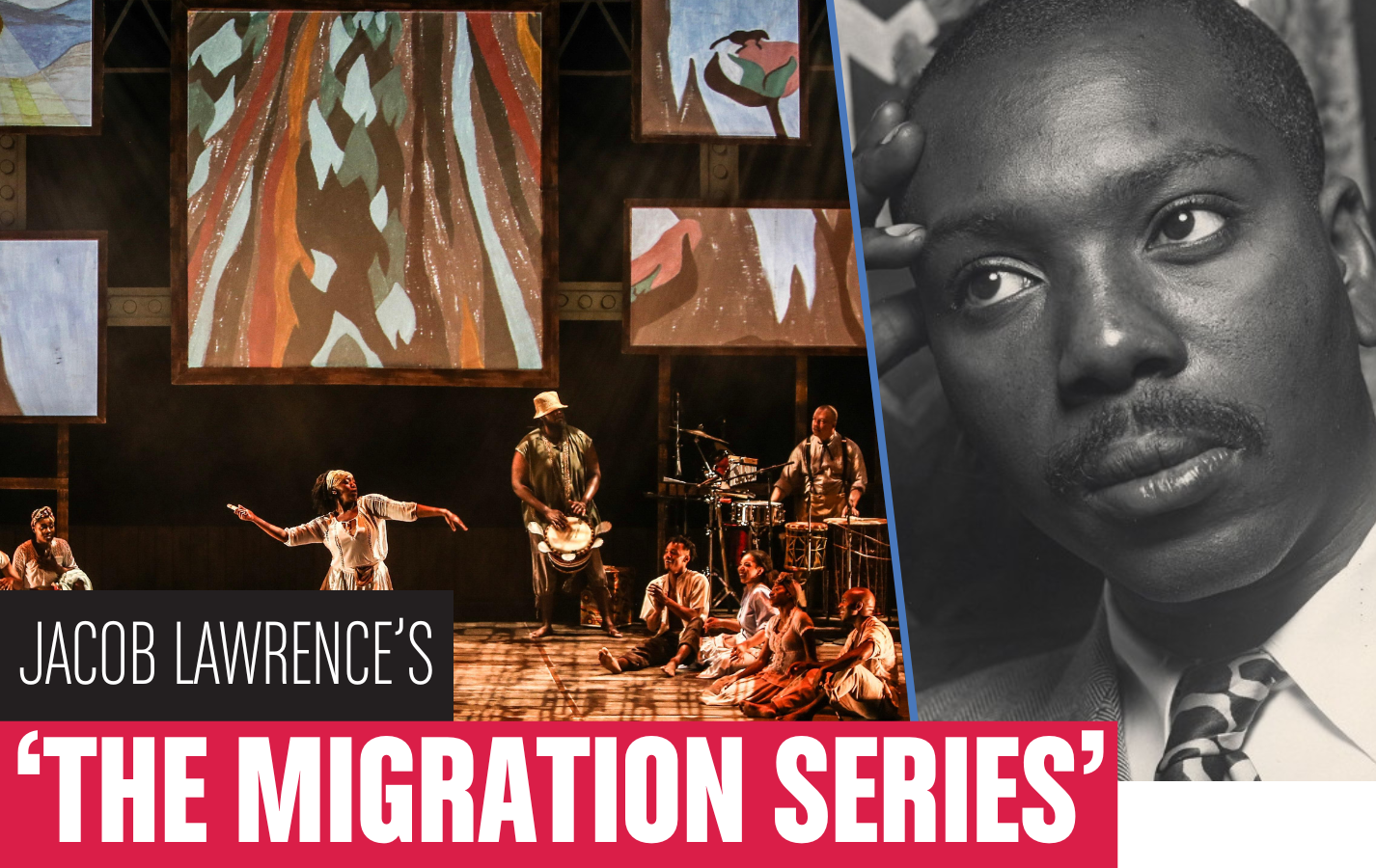
Tony Kushner is one of theater’s most celebrated playwrights. Boasting an extremely decorated award shelf, he’s received a Pulitzer Prize, two Tony Awards®, three Drama Desks, an Olivier, an Emmy, a Golden Globe, four Oscar nominations, two BAFTA nominations, even a Grammy nomination, and many others. In 2012, he was awarded a National Medal of Arts by President Barack Obama, the highest award given to artists, arts patrons, and arts organizations by the U.S. government.
Early Life and Influences
Tony Kushner was born on July 16, 1956, in Manhattan, New York, and then raised in Lake Charles, Louisiana. Descending from Russian and Polish immigrants, he is the middle child of William Kushner, a Juilliard-trained clarinetist, and Sylvia (Deutscher) Kushner, a bassoonist, and one of the first American women to hold a chair in a symphony orchestra. Kushner’s parents nurtured a love for the arts in the young playwright, and supported him as he explored the New York professional theater scene. Kushner read plays frequently, specifically the works and theories of Bertolt Brecht.
Education and Work
Kushner returned to New York to attend Columbia University, earning his undergraduate degree in medieval studies in 1978, followed by a graduate degree at Tisch School of the Arts at New York University in 1984. His early plays include La Fin de la Baleine: An Opera for the Apocalypse (1983); A Bright Room Called Day (1985); and Yes, Yes, No, No (1985). His most famous play, officially titled Angels in America: A Gay Fantasia on National Themes, is a seven hour-long epic centering on the AIDS crisis. The play is split into two parts which premiered successively in 1991 and 1992.

Playwright Tony Kushner receives a National Medal of Arts from President Barack Obama at the White House. Chuck Kennedy, Public domain, via Wikimedia Commons.
Subsequently, Kushner wrote plays focused on international affairs, such as Slavs! (1994) and Homebody/Kabul (1999), addressing the relationship between Afghanistan and the West. Several years later, his admiration for Brecht appeared in his translation of Mother Courage and Her Children, which appeared in New York in 2006.
Collaborations
Kushner contributes to works across many different mediums. He wrote the book and lyrics to the Tony and Grammy-nominated musical Caroline, or Change. He authored the children’s book Brundibar (2003), illustrated by Maurice Sendak (most known for Where the Wild Things Are). He also wrote the screenplays for multiple Stephen Spielberg films including Munich (2005, co-written with Eric Roth), Lincoln (2012), and The Fabelmans (2022), all of which received Oscar nominations for Best Adapted or Original Screenplay. He also wrote the script for Spielberg’s remake of West Side Story (2021).
Personal Life
In 2003, Kushner had a commitment ceremony with his now-husband, Mark Harris, a former executive editor of Entertainment Weekly. They officially married in 2008 and appeared as the first gay couple to be featured in The New York Times’ “Vows” column.
About Angels in America
Although Kushner has currently written over 40 plays, he’s best known for the Angels in America series: Part One: Millennium Approaches, and Part Two: Perestroika. Kushner began writing Angels in America in 1980; it was his second play ever produced.

(top, l-r) Edward Gero, Susan Rome, Billie Krishawn, Nick Westrate, Justin Weaks, (bottom, l-r) Deborah Ann Woll, John Austin, Michael Kevin Darnall for Angels in America, Part One: Millennium Approaches. Photo by Tony Powell.
This landmark work focuses on the queer community during the AIDS epidemic of the 1980s. In it, we meet Louis and Prior and Harper and Joe, two couples whose relationships are on the rocks; the former because of Prior’s AIDS diagnosis and Louis’ inability to cope with illness, and the latter because of Joe’s closeted homosexuality and Harper’s incessant fears and hallucinations. The intermingled themes of sexuality with religion and politics with humanity are what makes this play so potent—especially emerging during the early 1990s, a time rife with homophobia. Part One: Millennium Approaches premiered in 1991, and went on to win the 1993 Pulitzer Prize for Drama and the 1993 Tony Award for Best Play; Part Two: Perestroika, followed in 1992, and then won the 1994 Tony Award for Best Play. In 2003, the epic was adapted into an Emmy Award-winning television miniseries.
Arena Stage has the distinct honor to mark the 30th anniversary of the play’s Broadway premiere with an innovative in-the-round production of Angels in America, Part One: Millennium Approaches, beginning performances this Friday, March 24. Get tickets here!




